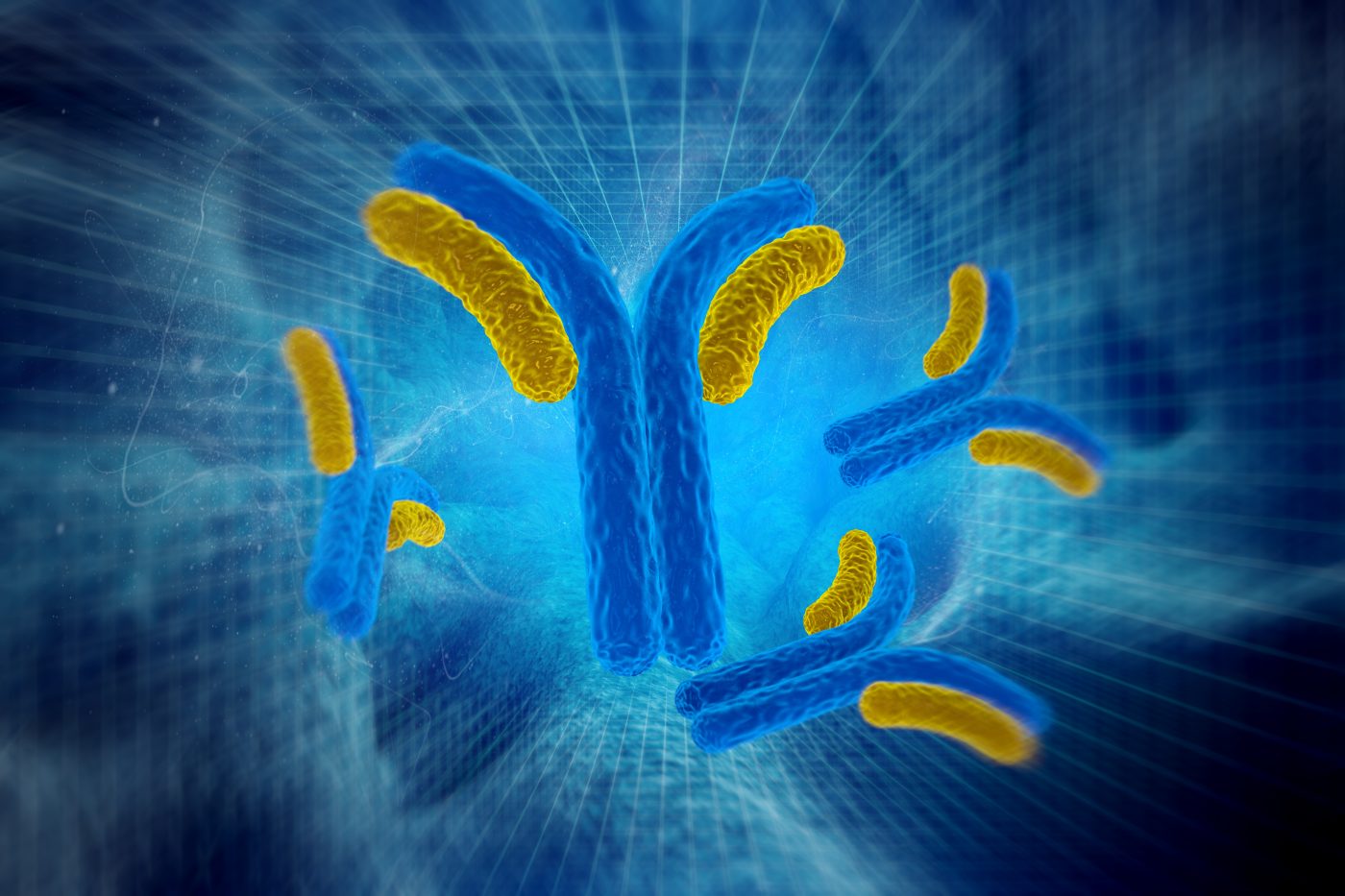Specific Autoantibody Protects Some SSc Patients Against Cancer, Study Suggests
Written by |

Some people with systemic sclerosis (SSc) are protected from cancer development by the presence of anti-RNA polymerase I autoantibodies, a study suggests.
The study, “Scleroderma patients with antibodies against the large subunits of both RNA polymerases-I and -III are protected against cancer,” was published in the journal Arthritis & Rheumatology.
SSc is a chronic autoimmune disease, and recent studies have suggested that some people with SSc may have cancer-induced autoimmunity.
According to the researchers, this connection between SSc and cancer is most striking in patients with antibodies that target the large subunit of the critical enzyme ribonucleic acid (RNA) polymerase III (RPC155). The presence of these anti-RPC155 antibodies has been linked to a 2.8 times increased cancer risk within three years of scleroderma onset.
Remarkably, despite this increased risk, approximately 85% of SSc patients with these antibodies do not develop cancer on follow-up. These data have prompted scientists to suggest that an additional autoimmune response may be responsible for cancer protection.
To address this question, researchers analyzed the cases of 168 people with SSc who had anti-RPC155 antibodies. Among them, 80 had a cancer history, but 88 did not, after more than 5 years of follow-up.
From this patient group, researchers randomly selected 35 individuals’ sera for autoantibody discovery — 17 with cancer, and 18 without.
In seven of the 18 SSc patients without cancer (38.9%), researchers identified a protein with a molecular weight of 194 kD. It was present in the serum of only one patient out of 16 with cancer (6.3%).
Given its weight, the researchers wondered if this 194 kD protein could be the large subunit of RNA polymerase I (RPA194). The investigators noted that “RNA polymerase I is a known scleroderma autoantigen.”
To test this idea, the team synthesized and purified both RNA polymerase proteins, and tested them against SSc patients’ sera. The results confirmed that the 194kD protein found was indeed RNA polymerase I (RPA194).
Researchers then tested all the initial 168 SSc people in the study. They found that antibodies against RNA polymerase I (anti-RPA194) were present in the sera of 16 out of 88 (18.2%) SSc patients without cancer, compared to only 3 out of 80 (3.8%) with cancer. That suggests that an anti-RPA194 presence could potentially offer a protective role against cancer, the researchers said.
“Anti-RPA194 antibodies are enriched in anti-RPC155-positive patients without cancer,” the researchers said.
According to the team, RNA polymerase I levels are increased in many cancers, and inhibition of this enzyme has anti-cancer effects. This suggests that an additional immune response against RNA polymerase I (RPA194) may play a role in controlling cancer in some people with SSc.
An interesting additional finding was that those with both types of antibodies — anti-RPA194 and anti-RPC155 — were less likely to have severe gastrointestinal disease (26.3%), compared with patients with anti-RPC155 antibodies alone (51.0%). This indicated that having both antibodies did not lead to a more severe form of SSc.
Overall, the results provide insights into the mechanism of immune responses in people with SSc without cancer. Based on the results, the team concluded that detecting anti-RPA194 antibodies at SSc diagnosis might be clinically useful to identify future cancer risk in people with SSc.
“In future studies with larger numbers of RPA194 antibody-positive patients, it will be important to define the phenotype and mortality in the anti-RPC155 groups with or without RPA194 antibodies,” the researchers said.





